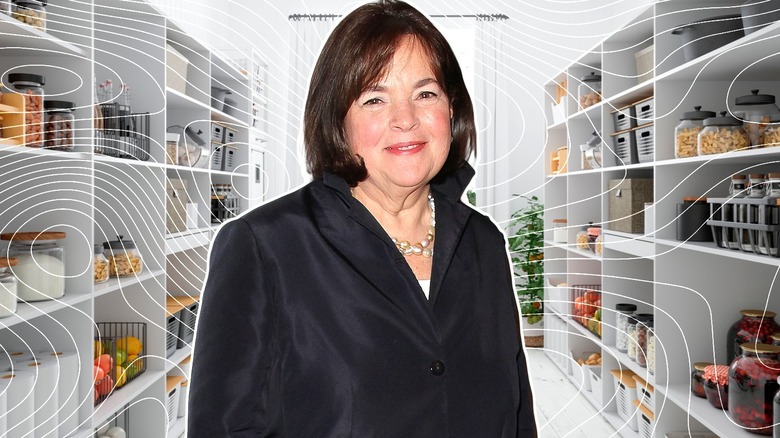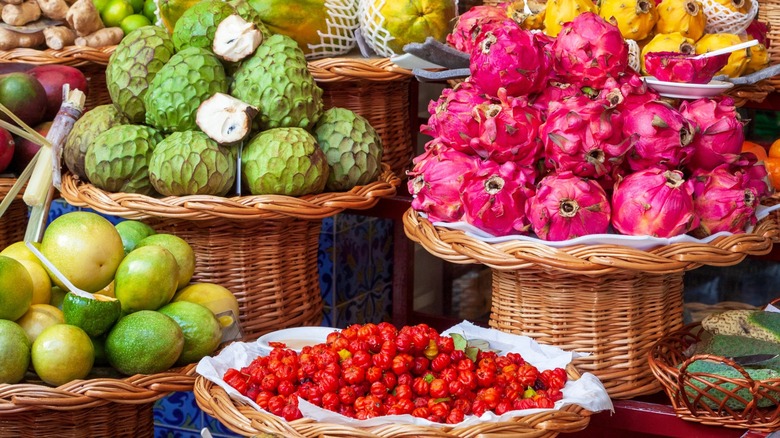Ina Garten's Essential Pantry Tip To Keep Things From Getting Chaotic
The culinary curious love to experiment — it's in our taste buds' DNA. However, experimenting can quickly become costly when you buy ingredients that you discover you probably won't use again. Whether it's that cardamom that you bought for an Indian dish that you discovered was too spicy for the kids or the vanilla beans you bought to make that decadent and festive white hot chocolate for a holiday party, buying ingredients — expensive or not — is a waste if you can only use them once.
But one-hit wonders in the kitchen don't have to be a thing if you follow famous chef Ina Garten's essential pantry tip for keeping things from getting chaotic. The Barefoot Contessa told Bon Appétit: "I generally don't use unusual ingredients that you'll only use once." Garten went on to note that "... there's no point in having a recipe you can make in 30 minutes if [it] takes you two hours to shop for it." Facts. While Garten's tip is sage and will help eliminate waste in your kitchen, what can you do instead? One word: substitution.
Become a culinary planner and innovator
That's right, the best way to avoid cluttering your pantry is to figure out comparable ingredient substitutions. This has two benefits — one for your pocketbook and the other for the environment. For example, if you are making a creamy saffron butter pasta, consider combining paprika and turmeric instead of dropping your hard-earned dollar bills on saffron, which is quite pricey.
If you are making some blueberry cardamom donuts for the family for a special Sunday brunch, instead of buying expensive cardamom, use ground cinnamon mixed with nutmeg to create a similar warm-tasting spice. Making roasted berry and buttermilk pancakes from scratch but can't use a whole container of the sour dairy liquid? Add a little vinegar to milk to create some ad hoc buttermilk and you are in business.
If you're worried that the substitution will compromise the flavor quality of the dish you are making, you can also jump on the "plan ahead" train and find additional recipes you can make that will use the unusual or expensive ingredients so you don't end up tossing them out. This approach not only allows you to experience how the ingredient affects the taste of a dish but has the added bonus of potentially introducing you to new culinary delights!

